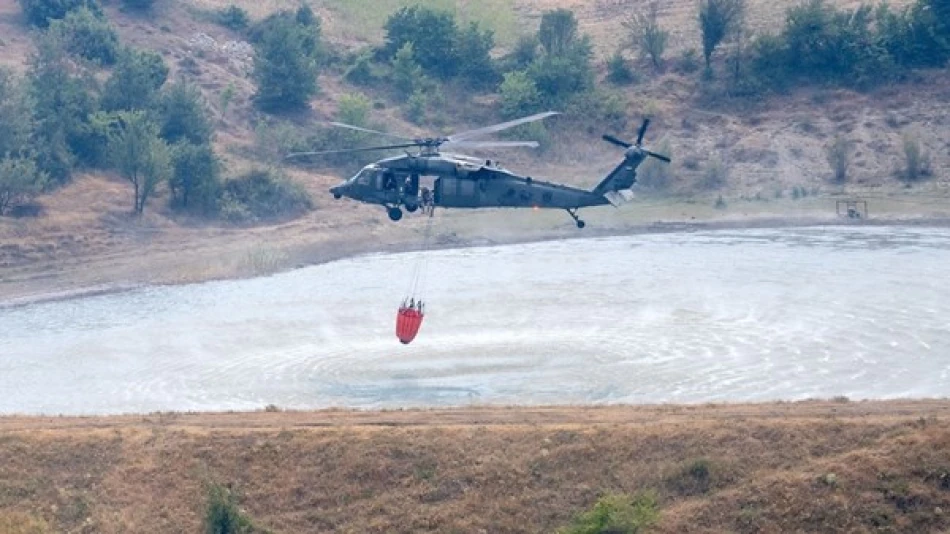
Emirati Rescue Team Battles Albanian Wildfires for Fifth Consecutive Day
UAE's Fire-Fighting Mission in Albania Highlights Growing Diplomatic Soft Power Strategy
The United Arab Emirates is deploying advanced firefighting capabilities in Albania for the fifth consecutive day, demonstrating how the Gulf nation increasingly uses humanitarian assistance as a tool for expanding its global influence. The mission, operating under direct orders from President Sheikh Mohammed bin Zayed Al Nahyan, represents more than disaster relief—it's a calculated investment in strengthening ties with European nations amid shifting geopolitical dynamics.
Scale and Scope of the Operation
UAE rescue teams have conducted 15 aerial missions since operations began last Monday, deploying over 600,000 kilograms of water across multiple fire zones. The teams are utilizing cutting-edge monitoring equipment to track fire locations, ensure containment, and prevent rekindling—critical capabilities given Albania's challenging terrain and soaring temperatures.
The operation's coordination with Albanian local authorities demonstrates the UAE's growing expertise in international disaster response, a capability the nation has been systematically developing over the past decade.
Strategic Implications Beyond Humanitarian Aid
Building European Partnerships
This mission fits within the UAE's broader strategy of cultivating relationships across Europe, particularly with nations seeking diversified partnerships beyond traditional EU powers. Albania, as an EU candidate country with growing economic ambitions, represents an attractive partner for UAE investment and trade expansion.
The timing is significant: as European nations reassess their energy and economic dependencies following recent global disruptions, the UAE positions itself as a reliable partner capable of rapid, effective assistance.
Diplomatic Dividends
Similar humanitarian missions have yielded substantial returns for the UAE. The nation's disaster response efforts in countries like Lebanon, Turkey, and various African nations have consistently translated into stronger diplomatic ties, preferential trade agreements, and investment opportunities.
For Albania specifically, this assistance could pave the way for UAE investment in the country's tourism sector, renewable energy projects, and infrastructure development—areas where Albanian leadership has actively sought foreign partnership.
Regional Competition and Global Positioning
The UAE's rapid response capability puts it in direct competition with traditional regional powers like Turkey and Saudi Arabia, both of which have also expanded their humanitarian diplomacy efforts in the Balkans. However, the UAE's operational efficiency and advanced technology give it distinct advantages in disaster response scenarios.
This mission also reinforces the UAE's positioning as a middle power capable of projecting influence far beyond its immediate region—a strategy that has proven successful in Africa, Asia, and now increasingly in Europe.
Long-term Implications
The Albania operation signals the UAE's commitment to maintaining a permanent rapid-response capability for international disasters. This positions the nation as an indispensable partner for countries facing climate-related emergencies—a growing concern across Europe as extreme weather events become more frequent.
For investors and diplomatic observers, the mission represents the UAE's evolving role from regional power to global player, using humanitarian assistance as both genuine aid and strategic investment in future partnerships.
Most Viewed News

 Layla Al Mansoori
Layla Al Mansoori






